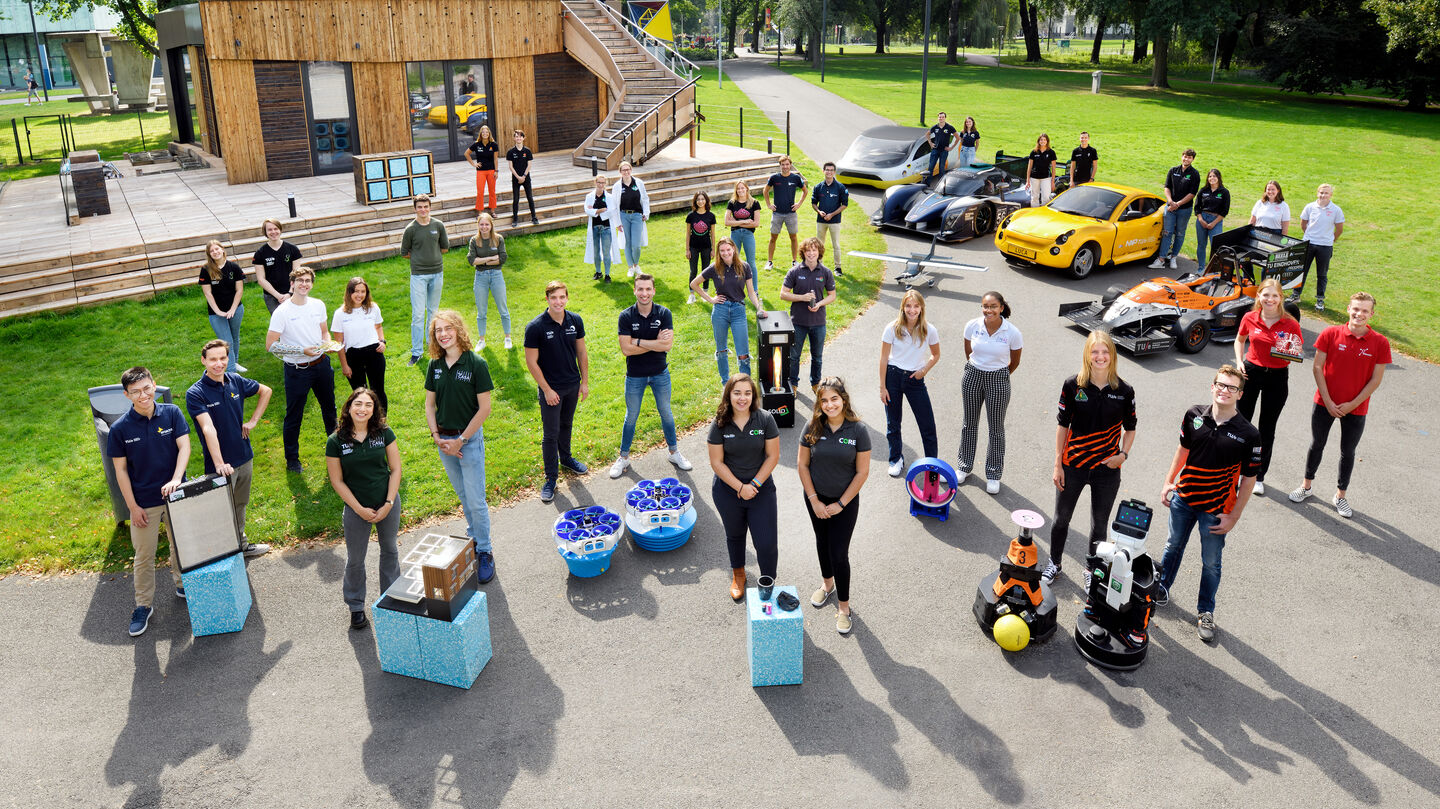
Limited recruits forces student teams to be creative
As students show decreasing interest in extracurricular activities, student teams are finding it increasingly difficult to recruit new members. Some teams are running into trouble as a result, being forced to creatively manage their limited manpower.
Student teams are interdisciplinary, autonomous organizations within TU/e, where students can immerse themselves in projects with social and technological value. In total, the university hosts dozens of such teams. Although TU/e has no shortage of engineering students, non-technical and board positions are proving difficult to fill—especially full-time ones. This leads to gaps within some teams, for example in marketing and finance, which in turn creates challenges for their future operations.
Downward Trend
Cursor spoke with eight student teams about their experiences and the reasons behind the declining interest. They indicated that last year, the proposed late graduation penalty was a major reason students did not apply. But even now that the plan has been scrapped, teams say they still need to invest more effort into their recruitment campaigns than before.
According to them, the main factors currently discouraging students from joining are increasing study stress, performance pressure, and rising living costs.
“Students—and especially internationals—are reluctant to risk study delays, and joining a student team can cause that, or at least significantly increase your workload,” writes Maarten Hundscheid, team lead of Totem Game Dev. “It’s therefore important to show what you can gain from it, so it feels valuable and beneficial, not like something that sets you back.” And there are still students who see it that way. Gaining new skills and learning opportunities are often cited as decisive factors for joining a team.
A broader problem
Student teams are not the only ones struggling with recruitment—it’s part of a broader trend affecting all extracurricular organizations. Student participation bodies, as well as the boards of study and student associations, face the same issue.
The decline is visible nationwide. Across the Netherlands, student associations saw their new member numbers drop again—from 8,300 in 2024 to 8,100 in 2025. And in August, the Dutch National Students’ Association (ISO), the National Chamber of Student Associations (LKvV), and the Erasmus Student Network expressed concern about the future of student organizations, citing the waning interest in board positions.
Still, there are significant differences between student teams at TU/e. These depend partly on the total number of available positions, the team’s focus area, and whether students can participate part-time or only full-time. For example, Team SerpentineAI and Team Daedalus report no recruitment issues. Solar Team Eindhoven is still looking for two full-time members but can start regardless. Totem Game Dev and SensUS have grown—though not without effort. And iGEM confirms the downward trend, but has yet to begin this year’s recruitment.
Visibility
At TU/ecomotive, members have had to take on extra tasks to cover unfilled roles. The team spends a year building a car, which they showcase at various summer events. The team currently consists of 36 members, including four board members and six full-timers. A recent recruitment round failed to produce a project or acquisition manager.
Because building a car within a year requires tight planning, the marketing manager has stepped in as project manager. Meanwhile, team manager Tim Spencer has taken on acquisition duties. “I’m now visiting companies myself,” he explains. “That has to happen now because they’re setting budgets for next year—but it means I barely have time to be with the team. It’s not ideal.”
Marketing efforts are currently minimal, even though visibility is crucial for the team’s long-term success. They are still looking for a full-time marketing manager. A part-time acquisition/operations member has been found, but the team remains open to full-time candidates. “Especially Dutch-speaking students,” Spencer adds. “Around 80% of our team is international, but local companies prefer to talk to someone who speaks the language.”
No Response
The new leader of Aero Team is currently working plenty of overtime. Although the team has no shortage of engineers (20 in total), several important (board) positions remain vacant. “Despite receiving more applications than ever, we didn’t manage to find a single student for marketing, finance, or operations,” says team lead Szymon Falat.
The team reached out to other universities, such as Tilburg University. “A few students came by, but once they found out the position was unpaid, we never heard from most of them again.” The team is now in talks with the Brabant Support Organization for Student Teams (BOOST) and nearby universities to explore potential solutions. Falat notes: “Maybe it shouldn’t be Tilburg coming to us—maybe we should go to Tilburg.”
For now, the Aero Team board consists only of Falat and a friend. “We’ll survive if we don’t find new members,” he says, “but it’ll hurt us in the long run because we won’t be visible enough on social media or have our finances in order.” The team is considering hiring an external bookkeeping agency.
Whether it’s missing marketing managers or vacant board seats, recruitment challenges are increasingly striking at the heart of many teams. The coming years will reveal whether the current generation of students can still find the time, motivation, and resources to carry on the tradition of TU/e’s student teams.
This article was translated using AI-assisted tools and reviewed by an editor.

Discussion